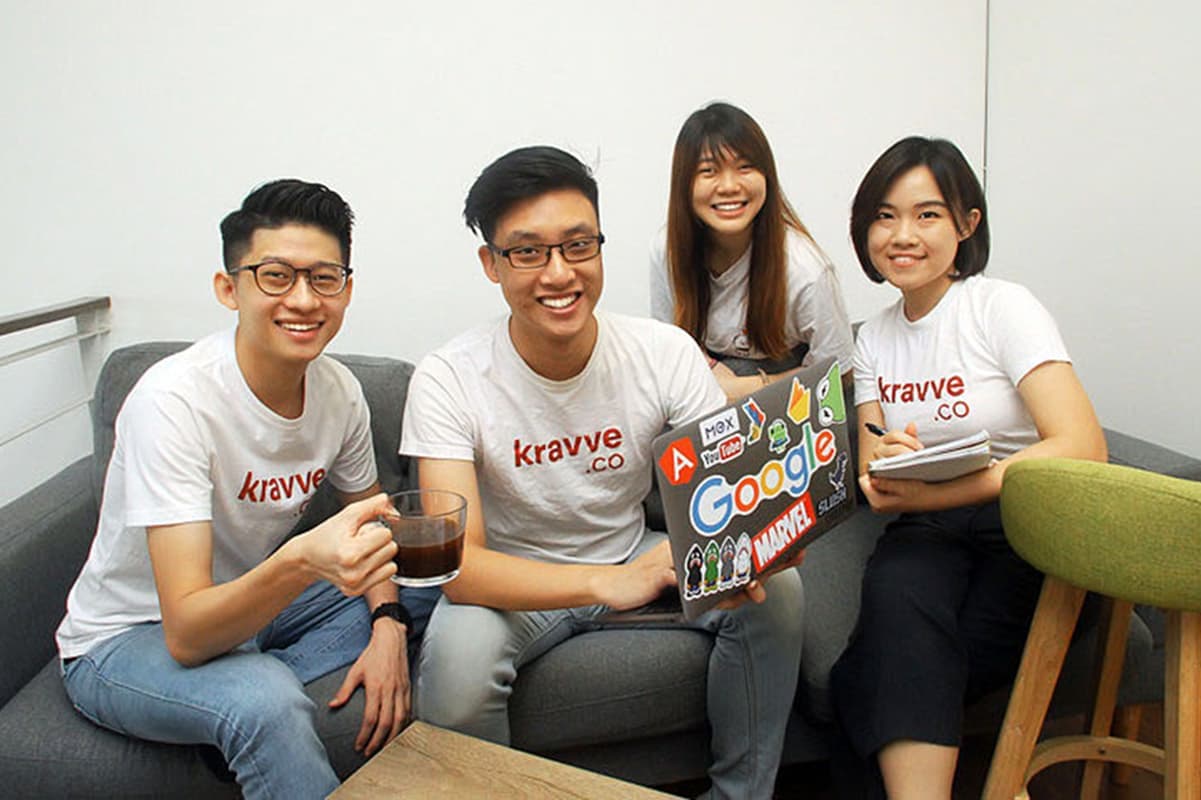
Like most homemakers, Teh Yong Lin’s mother is a good home cook, one of her signature delicacies being pumpkin jam. “She would often gift her jams to family and friends. So one day, just a few weeks before Chinese New Year, I asked her why she did not start selling the pumpkin jam,” recalls Teh.
Mother and son then checked out a few e-commerce platforms and found the process cumbersome and challenging. “I also noticed that there were many food artisans promoting and selling their items via social media. Most of these food creators were micro-businesses and usually, it was a one-person team who did the cooking, marketing and delivery of the food item,” he says.
It was then that Teh, who had worked for a digital marketing company and a leading coding school, decided to create a platform for food artisans to market and sell their wares online. “Then, they could really monetise their cooking skills,” he points out.
And that was how Kravve.co was born in 2017. His friends, Heah Wen Juin and Chong Hoong Wei, liked what Teh was doing with the platform and joined the enterprise not long after.
“By creating Kravve.co, we wanted to help small enterprises digitise their business. We have built the system to be simple enough for a 60-year-old non-tech savvy person to use. We teach the entrepreneurs on the platform the best ways to present their products because selling products online is very different from selling them at bazaars or markets.
“You cannot sample the product if you are buying it online. So, we need to look at how to attract buyers using just photos and some information,” says the 28-year old. Beginning with about 30 food artisans, the first 1½ years were challenging, says Teh. He attributes the lacklustre response to the platform’s lack of focus. “It wasn’t just artisanal products but also meal delivery and catering services, so consumers were confused as to what we were about.”
Those first few months were tough. “I had given up a paying job and was working from home. There were hardly any sales then and my bank account was depleting. It was very demotivating,” he recalls.
Fortunately, a couple of angel investors saw potential in the platform and helped Teh and his team hone in on their priorities. “We then decided to be more focused on artisanal food products, emphasising how we were connecting home chefs to their customers.”
The platform, which began life as a Facebook page and later on WordPress, underwent further digital transformation in 2019, when Teh and the team custom-built a new system for the platform. This allowed for, among other things, greater customisation and improvements to the user experience. The look and feel of the website can be continually tweaked and refreshed to improve the user experience.
“We are also very data driven. For example, we are able to recommend products based on a visitor’s previous search or browsing history on the site,” says Teh.
Today, Kravve.co has more than 1,000 retailers from all across the country on the platform, offering a diverse range of food products from sambal to sausages. But it wasn’t until the Covid-19 outbreak early this year and subsequent Movement Control Order (MCO) that sales really skyrocketed.
“We saw more and more people buying from the platform, even those who had never bought anything online before — from fresh produce to artisanal foods,” says Teh.
In the three months of the MCO alone, sales were equivalent to the sales recorded in the whole of 2019. “Our sales just jumped five to seven times from January onwards. Restaurants were closed, so people were cooking at home,” he says, adding that popular items at the time included steaks.
Although the pandemic and lockdown have accelerated Kravve.co’s growth journey, Teh is cautiously optimistic about its future. “Although we are seeing more people shopping online, there are many who are unaware of how to do so.”
He feels that although e-commerce is here to stay, retailers and platforms like Kravve.co also need to look at other more developed e-commerce markets such as China.
“China is probably five years ahead of Malaysia and the rest of Southeast Asia when it comes to e-commerce, and there are more and more mom-and-pop entrepreneurs going online in China than anywhere else. Their logistics ecosystem is also far ahead, with same-day deliveries the norm,” he says, stressing that logistics is key to maintaining good customer experience.

